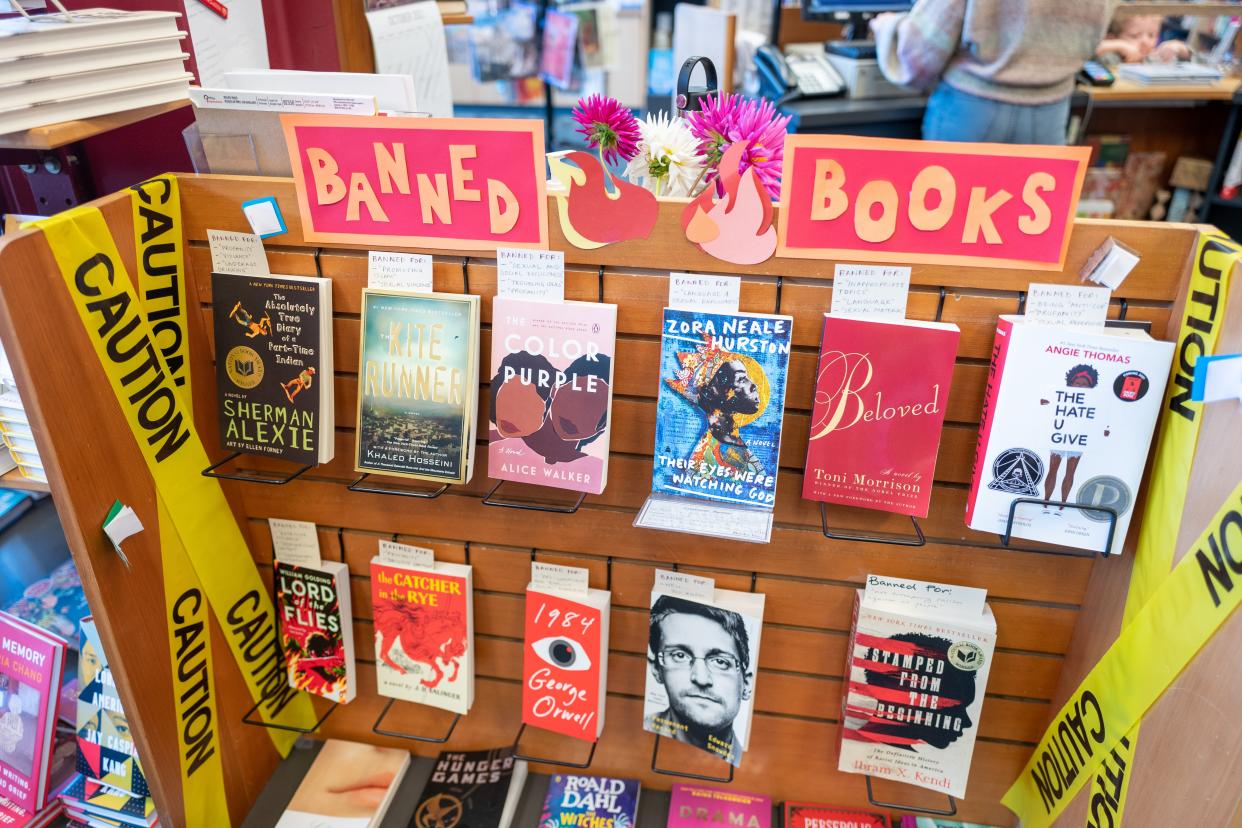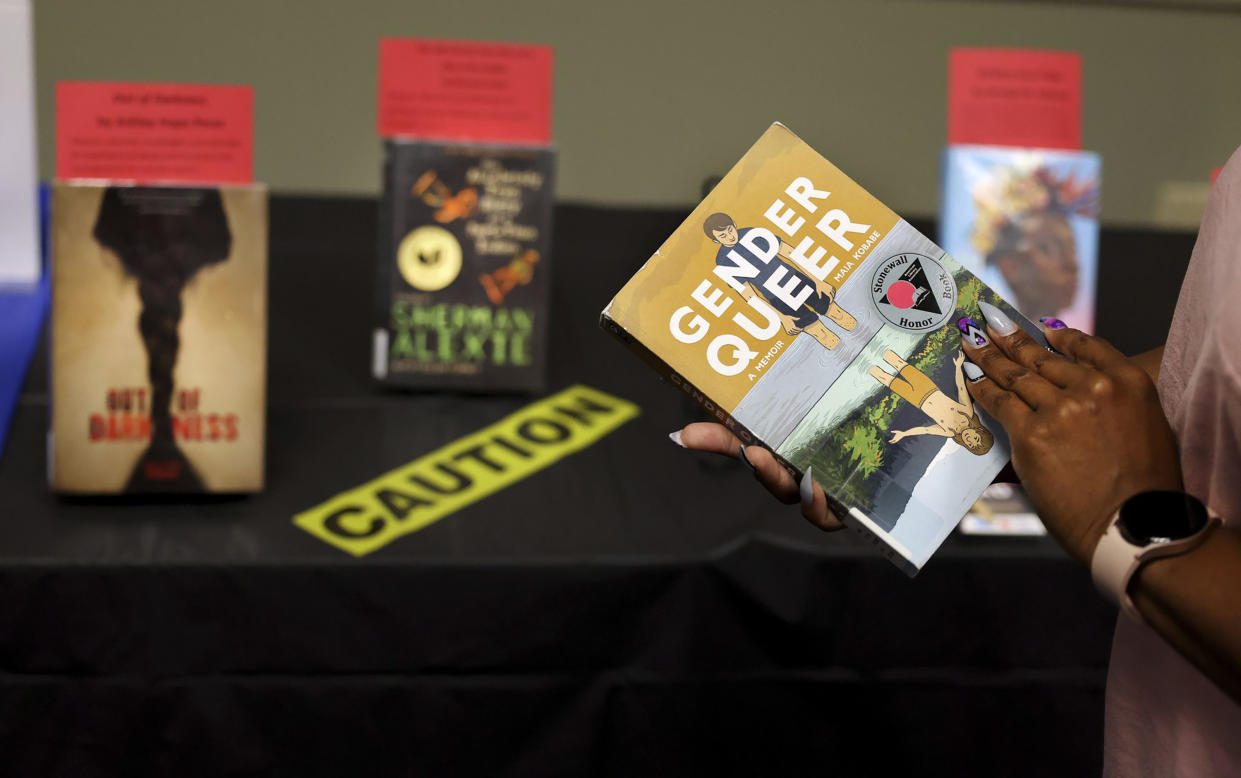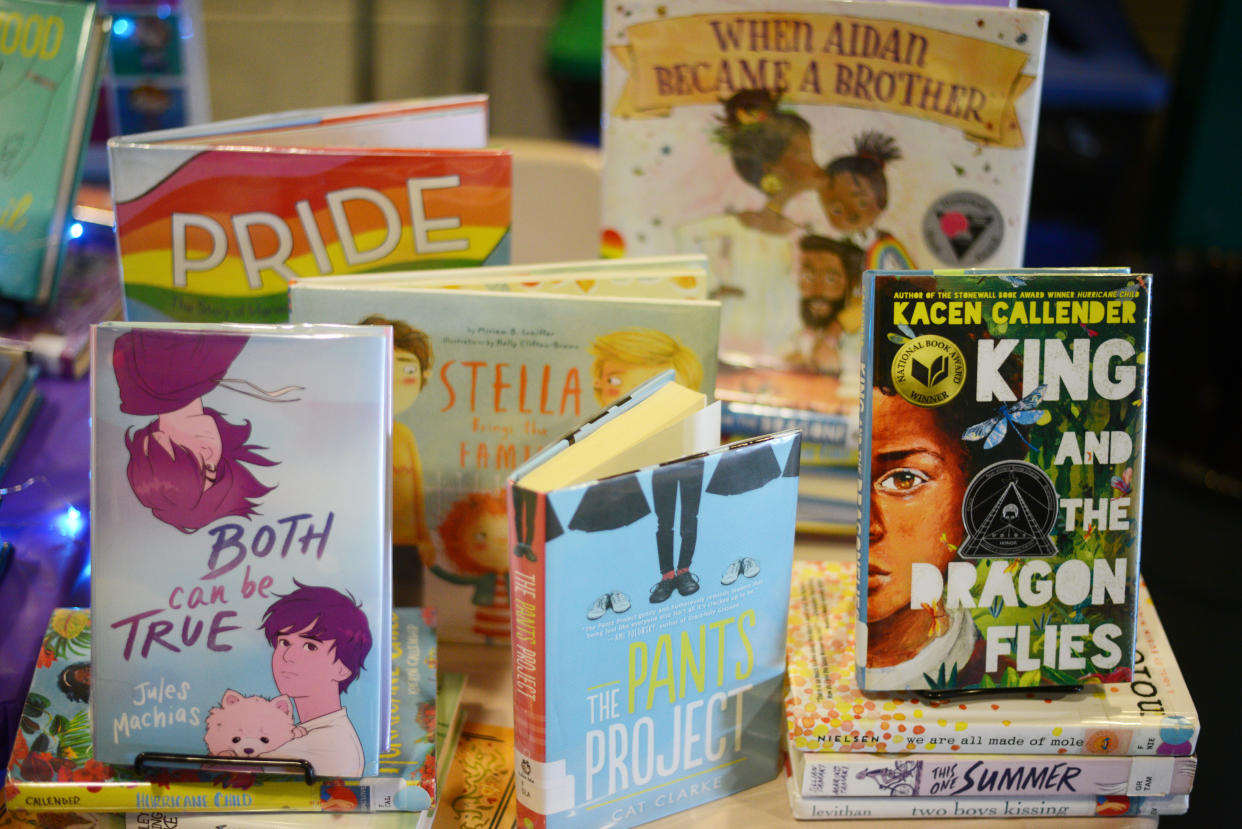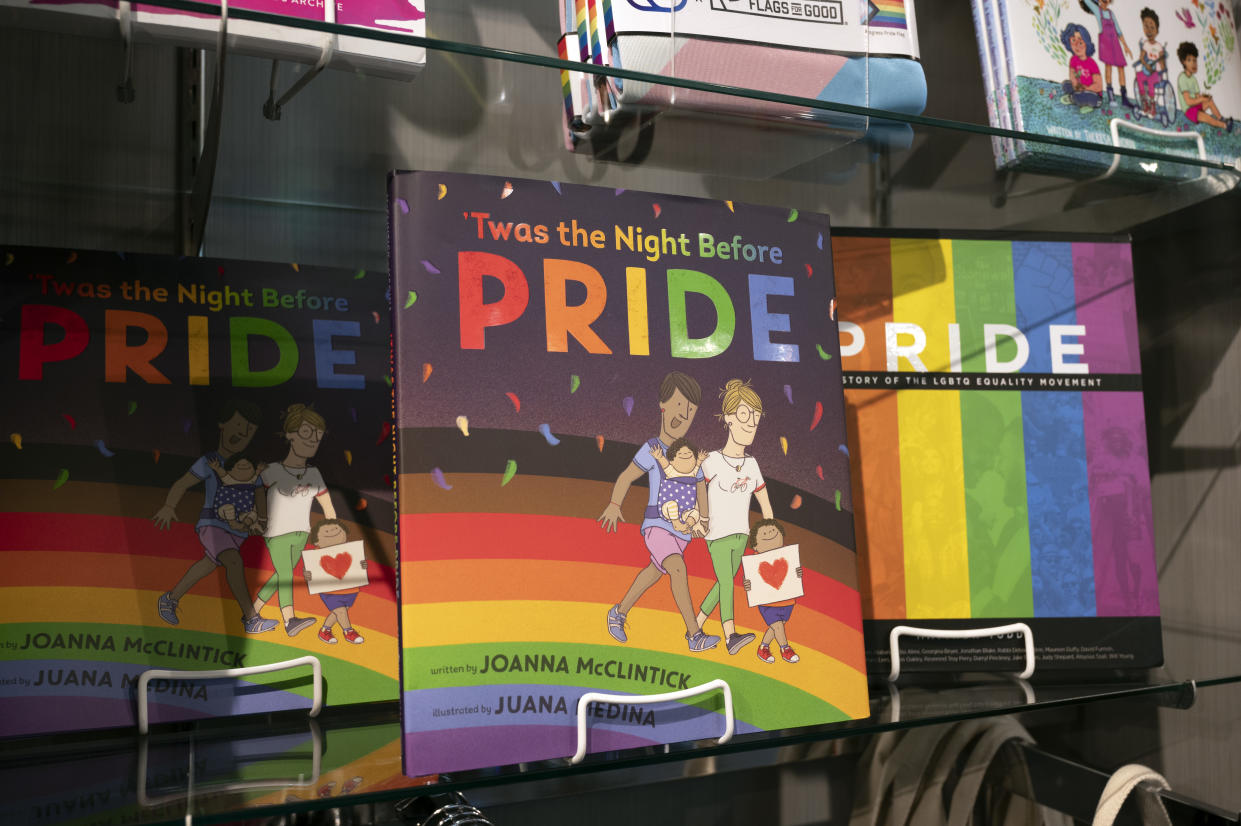Ban book bans? State lawmakers target book restrictions in libraries, schools

As dozens of states move to ban books deemed inappropriate for school libraries and classrooms, some local officials are seeking to counter efforts to censor certain materials.
Illinois recently became the first U.S. state to pass a law targeting “the alarming phenomenon” of book banning, leaving the door open for other states to follow suit.
“This scourge of censorship is having a dangerous and chilling effect on our democracy and a polarizing impact on our communities as political agendas attempt to divide them,” Democratic nominee for Illinois secretary of state Alexi Giannoulias, who has pushed for legislation against book bans, said in a statement. “These efforts are not about books; they are about ideas that certain individuals disagree with and believe no one should think.”
The American Library Association (ALA), a nonprofit that has reported on the record number of book bans sweeping the country, told Yahoo News that it is especially concerned about threats to slash funding for places like public libraries if they violate the rules, an enforcement method the ALA says could be “used to silence voices.”
"These [book ban] campaigns operate on the falsehood that there is a problem that needs to be solved,” Deborah Caldwell-Stone, director of ALA’s Office for Intellectual Freedom, said in a statement. “Nothing could be further from the truth.”
Book bans

In December 2022, book bans were reported in at least 32 states, with districts removing 1,477 books from the shelves, according to PEN America, a free speech organization that sued a school district in Florida over book restrictions. Most of the bans were concentrated in Florida, Texas, South Carolina, Missouri and Utah — all Republican-led states — and most of the content pertained to gender identity, sexual orientation and race. The most banned book of the school year was “Gender Queer: A Memoir,” by Maia Kobabe.
The restrictions are often a result of pressure from elected officials as well as organized efforts from advocacy groups. Florida Gov. Ron DeSantis, a 2024 Republican presidential candidate with a history of challenging educational institutes, has arguably been at the forefront of the movement, passing laws under which reading materials and classroom discussion involving themes of gender identity and race are limited or reviewed for temporary or indefinite removal.
But a 2022 ALA poll found that about 74% of parents are against the banning of books and “express a high degree of confidence in school librarians to make good decisions about which books to make available to children.”
Read more from Yahoo News: Florida Teachers consider self-censorship amid book challenges
Illinois
In June, Illinois Gov. J.B. Pritzker, a Democrat, signed legislation that he says will make Illinois the first state in the nation to prohibit book bans and “encourage and protect the freedom of libraries and library systems to acquire materials without external limitation.”

During a signing ceremony at a Chicago library, Pritzker slammed state leaders who’ve passed laws allowing for the censorship of certain materials.
“While certain hypocritical governors are banning books written by LGBTQ authors, but then claiming censorship when the media fact-checks them, we are showing the nation what it really looks like to stand up for liberty,” Pritzker said.
As of Jan. 1, 2024, any state public library that restricts or bans materials because of “partisan or doctrinal” disapproval will be ineligible for receiving financial assistance from the state.
“We are not saying that every book should be in every single library,” Giannoulias said. “What this law does is it says, let’s trust [the] experience and education of our librarians to decide what books should be in circulation.”
ALA said the Illinois law “responds to the environment of suspicion targeting libraries and librarians and the current disturbing campaign of censorship that impairs library workers’ ability to serve their communities and damages everyone’s fundamental rights.”
New Jersey
Since 2021, New Jersey has seen an increase in book removals that discuss racism, gender and sexuality. To quell the rise of book ban attempts, Democratic state senators in New Jersey proposed a law in May that would prohibit libraries and public schools from banning or restricting access to certain material or risk losing state funding.
"If a public library is going to ban or censor a book, then the state has the authority to hold some or all of their public funding," state Sen. Andrew Zwicker, D-Middlesex, who co-sponsored the bill, told New York news outlet ABC7.

In June, the Hoboken Public Library hosted a Banned Book Read-a-thon where books that were removed in various states were read aloud by elected officials and members of the LGBTQ community.
“These book bans are an unfortunate attempt to marginalize, degrade, and silence those like our valued LGBTQIA+ communities, and sweep under the rug critical topics including race and racism that are discussed in many of these books,” Hoboken Mayor Ravinder Bhalla said on Twitter.
Georgia
In Georgia, Forsyth County clashed with the Department of Education’s Office for Civil Rights after removing eight books in school libraries in 2022 following complaints from parents that the books contained “sexually explicit” material. After completing an investigation at the end of this school year, the office determined that the book removals may have created a “hostile environment” for students and violated their civil rights.
To resolve the issue, the Forsyth school district is required to explain to students its decision-making on the 2022 book bans and specify that the material was not removed due to race, gender, sex or sexual orientation — and the district has to include “an acknowledgement that the environment surrounding [the] removal of books may have impacted students.”

John Chrastka, the executive director of EveryLibrary, a nonprofit that advocates for the public funding of libraries, told the Washington Post in an email that the Department of Education is sending a message to U.S. school districts that they must “[minimize] categorical bans” of books about LGBTQ individuals and people of color.
California
While California has not enacted laws to restrict book banning, Gov. Gavin Newsom, Attorney General Rob Bonta and state Superintendent Tony Thurmond, all Democrats, wrote a joint letter warning California counties, superintendents and administrators that current state laws and the First Amendment protect students’ rights and access to books, and violating those rights by removing the books “may constitute unlawful discrimination.”
“While a local educational agency or administrator may remove books and other materials from a school library because of their educational suitability, pervasive vulgarity or profanity, or factual inaccuracies, it 'may not remove books from school library shelves simply because [officials] dislike the ideas contained in those books.'” the letter stated.


